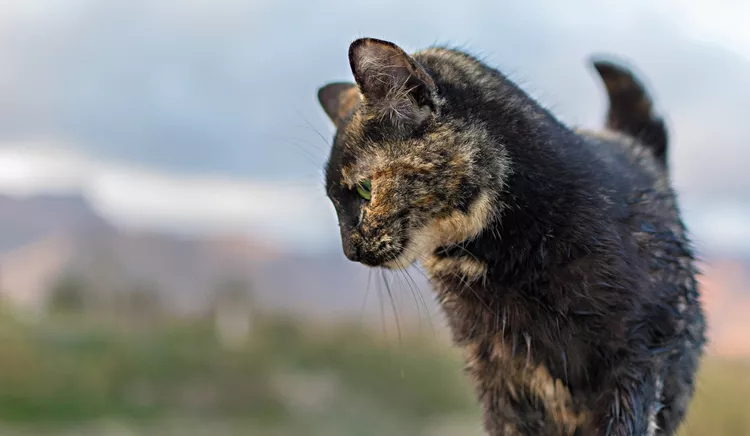How to Treat Feline Leukemia

Any cat can contract feline leukemia by being exposed to the virus that causes it. It is easily spread from cat to cat, but is also easily preventable. This viral infection is a serious, incurable disease. Cat owners, however, can take steps to prevent their cat from being infected.
What Is Feline Leukemia?
Feline leukemia is a very common disease in domestic cats with about 3% of all cats in the United States being infected. This disease is caused by the feline leukemia virus (FeLV) that can easily be transmitted to cats that are exposed to infected cats. Feline leukemia leaves infected cats at risk of developing cancer, anemia and infections because of a weakened immune system. There is unfortunately no cure for this viral infection.
Symptoms of Feline Leukemia
Feline leukemia is not easily recognizable by symptoms alone since there are so many possible signs of the disease. Cats that have been infected with the feline leukemia virus may exhibit a variety of symptoms including weight loss, lack of appetite, and persistent diarrhea. Because of how the virus affects the bone marrow, some cats may also develop weakness, pale mucous membranes, or bruising. Other common symptoms of feline leukemia include enlarged lymph nodes, fever, stomatitis, and neurological signs including seizures and behavior changes. Not all infected cats show symptoms right away.
Causes of Feline Leukemia
Feline leukemia is caused by the feline leukemia virus. This virus is shed in infected cats through their saliva, urine, feces, and if they are lactating, their milk, too. This means that if an infected cat bites or even grooms another cat, it can spread this virus. Sometimes it can even be spread through shared litterboxes and food and water dishes but it does not survive very long in the environment once it leaves the infected cat. Additionally, infected cats that are pregnant or nursing will pass the virus on to their offspring.
Diagnosing Feline Leukemia
Because cats infected with feline leukemia can exhibit a variety of symptoms, your veterinarian may recommend testing for the virus if your cat is sick. A small blood sample will be obtained and an enzyme-linked immunosorbent assay (ELISA) will be used to detect the virus in your cat's blood. This test is routinely performed in healthy kittens as a screening tool but is also used if your cat is exhibiting symptoms. A secondary assay called an indirect immunofluorescent antibody assay (IFA) is often performed if the ELISA is positive to rule out a potential false positive result. The IFA is more sensitive to advanced disease and will confirm the diagnosis of feline leukemia if it is also positive.
Treatment of Feline Leukemia
Feline leukemia is unfortunately not curable. Infected cats may require symptomatic treatment with medications and IV fluids but there is not long term treatment for the disease itself. Some cats may benefit from immune support supplements like beta-glucan found in Imuquin and other cat products or various antiviral drugs but any treatment should be discussed with your veterinarian to avoid any potential negative side effects.
How to Prevent Feline Leukemia
Despite not having a treatment option for cats infected with feline leukemia, there are two ways to help prevent your cat from contracting the virus. The best thing you can do for your cat to prevent feline leukemia infection is to get it vaccinated against FeLV. There are several types of FeLV vaccines available, but the Nobivac feline 2-FeLV vaccine—a whole inactivated vaccine—has been shown to be more effective than the others. The FeLV vaccine is considered a core vaccine for all cats under one year of age so your veterinarian will recommend this vaccine alongside vaccines for rabies, feline calicivirus, feline herpesvirus-1, and feline panleukopenia.
The other way to prevent feline leukemia in your cat is to keep your cat away from infected cats. This may be impossible if your cat is an indoor/outdoor cat, but if your cat doesn't leave the house, it is easier. Be sure to keep your house cat away from open windows and doors that infected outdoor cats can approach and transmit the virus through. Additionally, if you know that another cat from another household or a shelter has tested positive for FeLV, do not allow that cat to come into contact with your cat. Have new cats and kittens tested for feline leukemia as part of the adoption process.